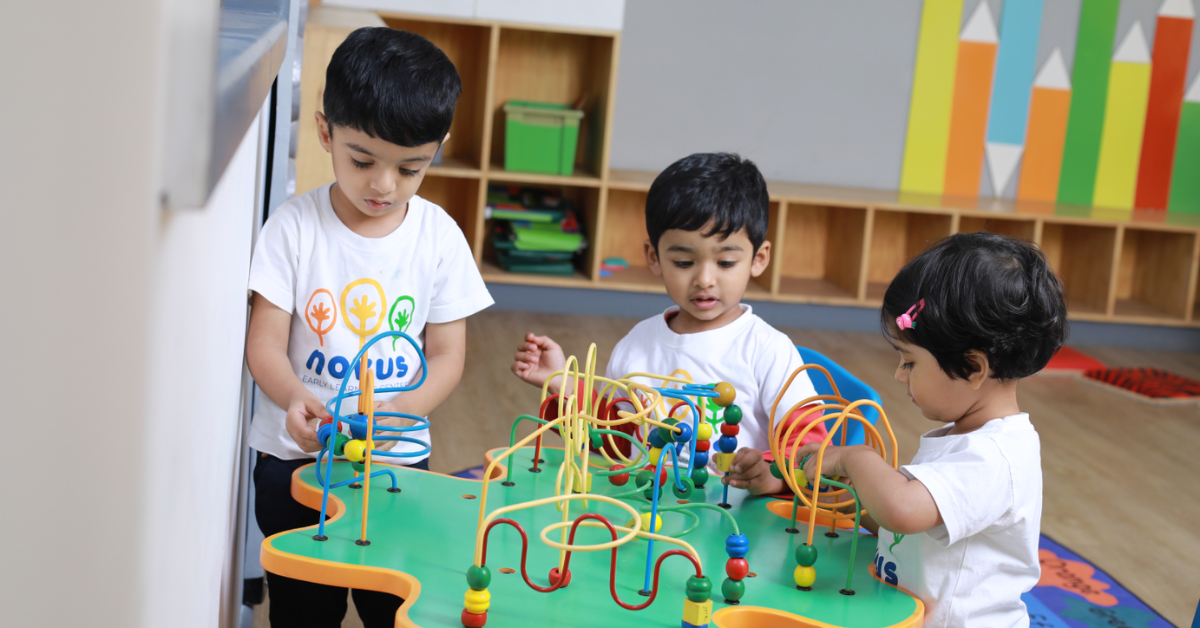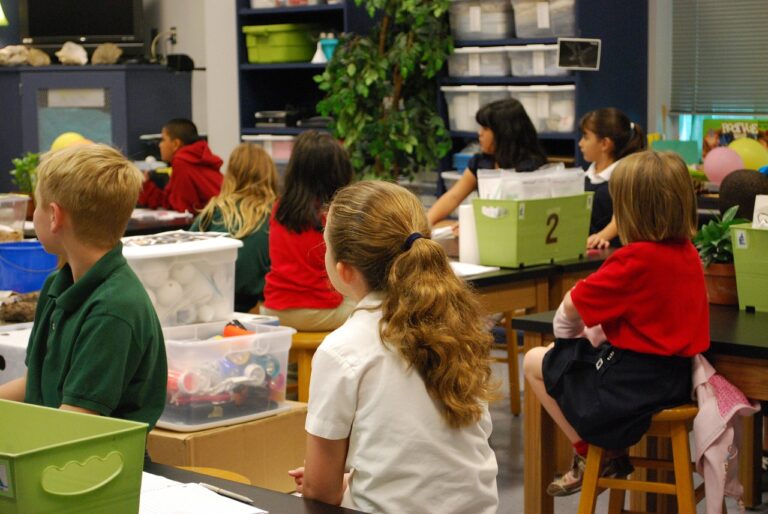Finding the Best Preschool Near You: A Comprehensive Guide for Parents
Choosing the right preschool for your child is one of the most important decisions you’ll make as a parent. The early years of a child’s life are crucial for their cognitive, emotional, and social development. A high-quality preschool sets the foundation for a lifetime of learning and success. If you’re searching for the Best Preschool Near Me, there are several factors to consider — from the curriculum and teaching methods to the learning environment and teacher qualifications. This guide will help you understand what makes a preschool exceptional and how to find the perfect fit for your child’s unique needs.
Why Preschool Education is Important
Preschool is more than just a place for children to play — it’s where they develop essential skills that form the basis of future academic and personal success. Early childhood education helps children build a strong foundation in:
- Cognitive Development – Learning through structured play and hands-on activities improves problem-solving skills, memory, and language development.
- Social Skills – Interacting with peers and teachers teaches children how to communicate, share, and cooperate.
- Emotional Development – Developing self-awareness and emotional regulation helps children understand and express their feelings.
- Physical Development – Activities like drawing, building, and running enhance fine and gross motor skills.
- Creativity and Curiosity – Encouraging imagination and exploration helps foster a love for learning.
How to Choose the Best Preschool Near You
Finding the best preschool near you requires careful consideration of several factors. Here’s what you should look for when evaluating preschools:
1. Curriculum and Teaching Approach
Different preschools follow different educational philosophies. Some of the most common approaches include:
- Play-Based Learning – Focuses on learning through play, helping children develop creativity and problem-solving skills.
- Montessori Method – Encourages self-directed learning, allowing children to explore and discover at their own pace.
- Reggio Emilia Approach – Focuses on project-based learning and encourages children to express themselves through art and creativity.
- Structured Learning – Uses teacher-led instruction with a set curriculum to teach foundational skills in math, reading, and writing.
Consider what style of learning aligns with your child’s personality and learning style.
2. Teacher Qualifications and Experience
The quality of teachers plays a significant role in a preschool’s success. Look for the following when evaluating preschool teachers:
- Education and Certification – Teachers should have relevant qualifications in early childhood education.
- Experience – Experienced teachers are better equipped to handle diverse learning needs and classroom situations.
- Teaching Style – Teachers should be patient, nurturing, and able to engage children in learning activities.
- Teacher-to-Student Ratio – A low ratio ensures that each child gets individual attention and support.
3. Learning Environment
A positive learning environment supports a child’s emotional and academic development. Look for preschools with:
- Safe and Clean Facilities – Classrooms and play areas should be well-maintained and child-friendly.
- Stimulating Materials – Toys, books, and learning tools should encourage exploration and creativity.
- Outdoor Space – Access to outdoor play areas allows children to develop physical skills and connect with nature.
- Inclusive and Diverse Atmosphere – A preschool that embraces cultural diversity helps children feel valued and respected.
4. Communication and Parent Involvement
Strong communication between teachers and parents is essential for a child’s success. Ask about:
- Parent-Teacher Meetings – Regular updates on your child’s progress and development.
- Open Door Policy – A preschool that encourages parental involvement and feedback.
- Daily Reports – Some preschools provide daily or weekly updates on classroom activities and individual progress.
5. Location and Accessibility
Convenience matters when selecting a preschool. A location close to home or work makes drop-offs and pickups easier. Also, consider:
- Transportation Options – Does the preschool offer bus services or have easy access to public transport?
- Operating Hours – Ensure the preschool’s hours align with your work schedule.
- Safety of the Surrounding Area – The preschool should be located in a safe and child-friendly neighborhood.
Benefits of Enrolling in a High-Quality Preschool
Choosing a high-quality preschool has long-term benefits for your child’s development:
Stronger Academic Foundation – Early exposure to math, language, and science concepts helps children perform better in primary school.
Improved Social Skills – Learning to share, cooperate, and resolve conflicts prepares children for social interactions in school and life.
Greater Independence – Encouraging self-help skills boosts confidence and independence.
Enhanced Creativity and Curiosity – Encouraging exploration and creative thinking fosters a lifelong love for learning.
Better Emotional Regulation – Learning to identify and express emotions helps children manage stress and form healthy relationships.
Common Mistakes to Avoid When Choosing a Preschool
To ensure you make the right choice, avoid these common mistakes:
Focusing Only on Academics – While academic preparation is important, social and emotional development are equally valuable.
Ignoring the Teacher-Student Interaction – Pay attention to how teachers engage with the children during your visit.
Overlooking Safety and Cleanliness – A safe and hygienic environment is non-negotiable.
Not Considering Your Child’s Personality – Every child is different. Choose a preschool that matches your child’s learning style and temperament.
Delaying the Decision – Preschools fill up quickly, so start your search early to secure a spot.
FAQs About Finding the Best Preschool
Q1. What is the ideal age to start preschool?
Most children start preschool between the ages of 2.5 to 4 years old. However, the right age varies depending on the child’s readiness and developmental stage.
Q2. How do I know if my child is ready for preschool?
Signs of readiness include the ability to communicate basic needs, follow simple instructions, and engage in play with other children.
Q3. How can I help my child adjust to preschool?
Gradually introduce your child to the new environment, meet the teacher beforehand, and establish a consistent drop-off routine to ease the transition.
Q4. What should I pack for my child’s first day of preschool?
Pack essentials like a water bottle, a small snack, a change of clothes, and any comfort items like a favorite toy or blanket.
Q5. How important are extracurricular activities in preschool?
Extracurricular activities like music, art, and physical education help develop creativity, motor skills, and social interaction, making them a valuable part of preschool education.
Q6. What should I do if my child has separation anxiety?
Be patient and consistent. Reassure your child that you’ll return, and avoid prolonged goodbyes to reduce anxiety. Most children adjust within a few weeks.
Conclusion
Finding the best preschool near you requires careful consideration of various factors, including curriculum, teacher qualifications, learning environment, and communication with parents. A high-quality preschool sets the stage for future success by nurturing cognitive, social, and emotional growth. Take the time to visit potential preschools, meet the teachers, and observe the learning environment before making your decision. Investing in the right preschool experience will give your child the best possible start in life.







